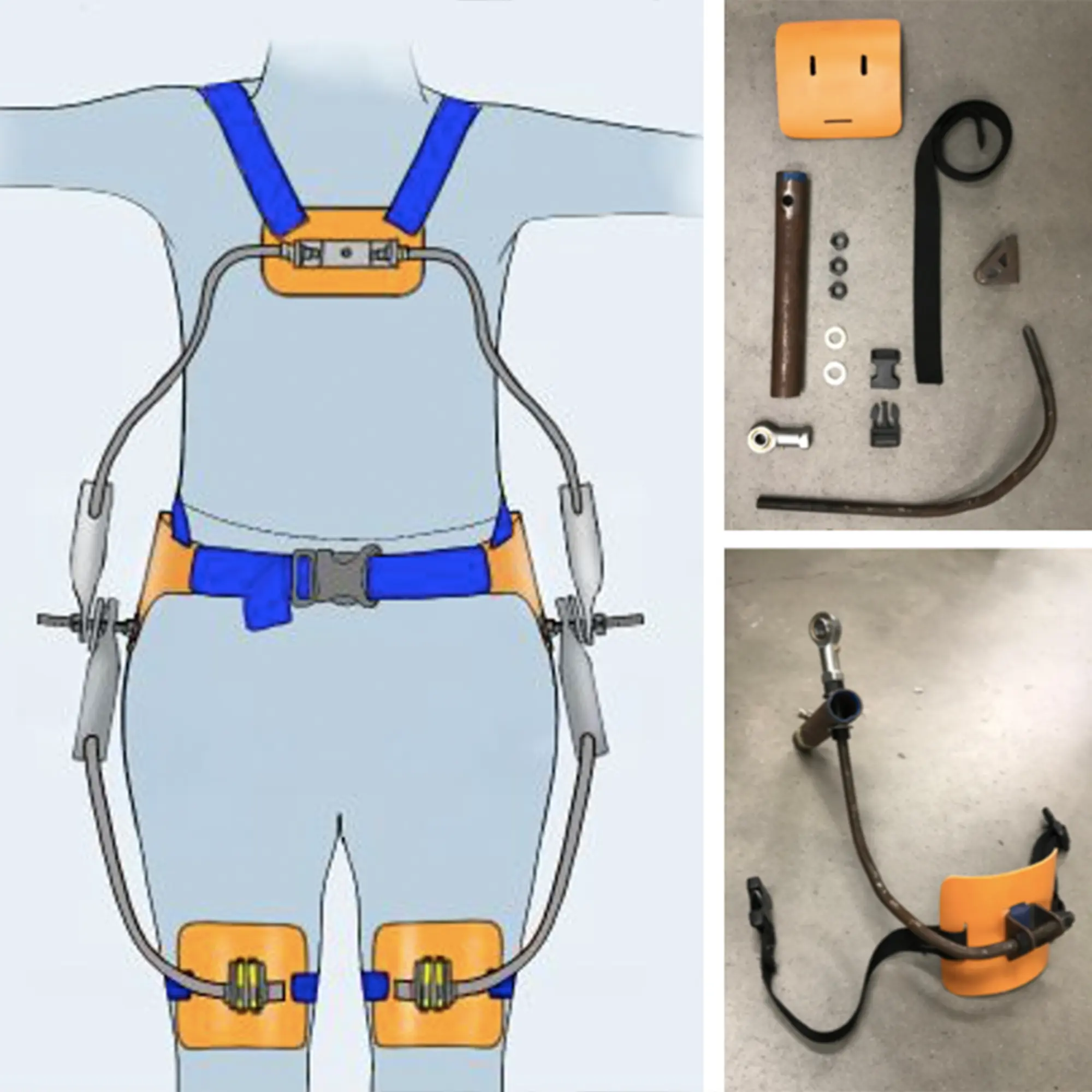- Radaelli G, Rosenberg EJ, Aguirre M, Verkuyl AC, Wisse BM. 2019/03. Wearable Flexible Structure and Method of Supporting a Torso. US2016250062A1 and WO2015041532A1. Granted.

The energy storage system supports the upper torso when bending forward while allowing unrestricted movement when bending to the ground.
Human motion is rarely purely rotational; the device's flexibility allows for a combination of rotational and translational movements that conform to the body during operation.
Exoskeletons should be comfortable, easy to wear and remove, and intuitive to control to promote everyday use.
The SEED Lab is proud to partner with local agricultural workers and Purdue's Veterinary School to advance technologies that benefit humanity.


The SEED Lab develops scalable solutions that anyone can build at home for educational and practical applications
The Exoskeleton’s supportive force properties are precisely calibrated using custom benchtop testing equipment, ensuring mechanical consistency and reliability.


The SEED Lab evaluates the usability and acceptability of the Exoskeleton among actual users, while also measuring muscle electrical activity through Electromyography.